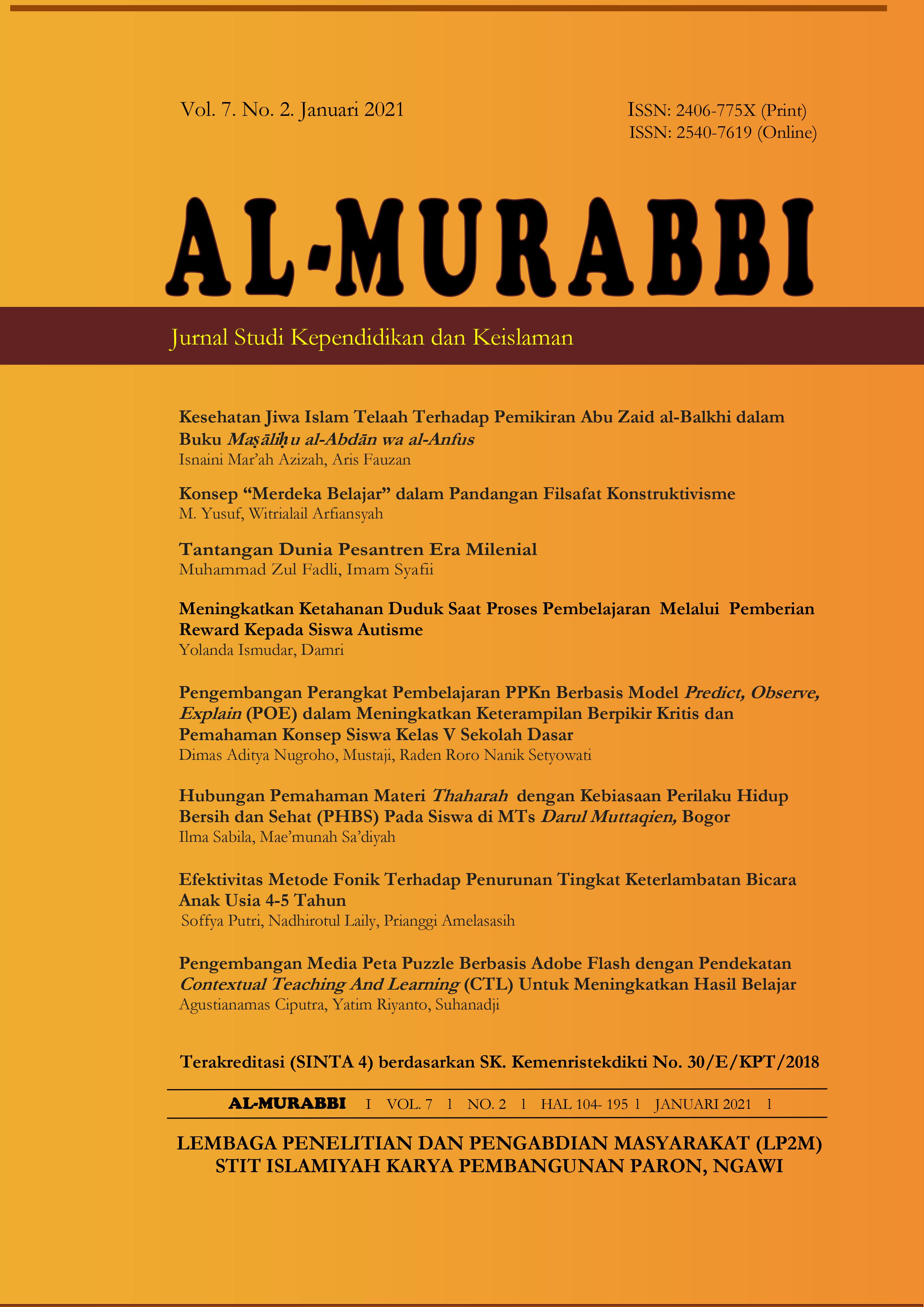Kesehatan Jiwa Islam Telaah terhadap Pemikiran Abu Zaid al-Balkhi dalam Buku Maá¹£Äliḥu al-AbdÄn wa al-Anfus
Abstract
The discourse on mental health is often an interesting and beneficial discussion across time. There are many developing concepts adopted from western thoughts. The concept offered by Islamic Psychology has not been explored yet. One of them is the concept of mental health from the perspective of Abu Zaid al-Balkhi. This study aims to analyze the concept of Islamic mental health, specifically the thought of Abu Zaid al-Balkhi in the book Maá¹£Äliḥu al-AbdÄn wa al-Anfus. By using a type of qualitative research with a descriptive-analytical method specifically in describing and analyzing mental health concepts, according to Abu Zaid al-Balkhi. Based on this research, it can be seen that mental health or a healthy soul is the stability of the soul’s strength in humans so that it can defeat the turmoil of psychiatric signs. Al-Balkhi classifies psychiatric symptoms into four groups, namely, sadness and anxiety (al-ḥuzn wal jazÊ»), obsession (al-waswas), anger (al-gaá¸ab), and finally, fear and phobia (al-khauf wa al-fazÊ»). To achieve happiness, humans should always try and strive for a balance between the body and soul. The attachment of both (body and soul) is in harmony with human construction, namely physical and spiritual. Caring for and maintaining health as a preventive effort is preferred than treating it if already sick. This is what distinguishes the concept of healing the soul of Islam, according to al-Balkhi, with the concept of western secular psychotherapy
Downloads
References
A.F Jaelani. 2001. Penyucian Jiwa (tazkiyat al Nafs) dan Kesehatan Mental. Jakarta: Penerbit Amzah h. 75.
Al-Balkhi. 2005. Maá¹£Äliḥu al-AbdÄn wa al-Anfus. Tahqiq: Mahmud Misri. Cairo: Ma’had al Makhtutaat al ‘Arobiyah
Aris Fauzan. 2016. Manusia dan Negara dalam Psiko Sufisme dan Filsafat. Jurnal Al-Istinbath: Jurnal Hukum Islam, Vol 1. No. 2
_____________. 2018. Al-Nabiy A-Ummiy dalam telaah Historik-Semiotik. Fokus: Jurnal Keislaman dan Kemasyarakatan, Vol. 3 No. 01, Juni 2018
Awaad, R., & Ali, S. 2015. Obsessional Disorders in al-Balkhi′ s 9th century treatise: Sustenance of the Body and Soul. Journal of Affective Disorders.
Baharudin. 2005. Aktualisasi Psikologi Islami. Jogja: Pustaka Pelajar.
Bahraen, Rehanul. 2016. Psikologi Islam yang Sempurna. Bekasi: Rumah Ilmu.
Bintu Syati, Aisyah. 2003. Manusia dalam Perspektif AL-Qur’an. Jakarta: Pustaka Firdaus.
Darajat, Zakiyah. 1983. Islam dan Kesehatan Mental. Jakarta: Gunung Agung.
Fathimah Abdullah, “Therapeutic Ethicâ€. Jurnal Afkar.
Hartono. Boy Soedarmaji. 2014. Psikologi Konseling. Jakarta: Kencana Prenada Media Grup.
Malik Badri. 2005. Dilema Psikolog Muslim. Terj. Siti Zainab Luxiati. Jakarta: Pustaka Firdaus.
Phillip K Hitti, History of The Arabs from the Ealiest times to The Present. Ed.9. New York: R&R Clark, LTD.
Prasojo, Wieriyanto. 2005. Kesehatan Mental Kajian Sudut Pandang Agama dan Sosial Kemasyarakatan. Jakarta: Tsaqafah.
Subandi.2013. Psikologi Agama dan Kesehatan Mental. Yogyakarta: Pustaka Pelajar. h. 131.
Syamsuddin, Ach. Maimun, 2012. Integrasi Multidimensi Agama dan Sains. Jogjakarta: IRCiSoD.
Zaharuddin, Z. 2016. Telaah Kritis terhadap Pemikiran Psikologi Islam di Indonesia. Intizar. 19(1), 163-188.
Copyright (c) 2021 AL-MURABBI: Jurnal Studi Kependidikan dan Keislaman

This work is licensed under a Creative Commons Attribution-ShareAlike 4.0 International License.

